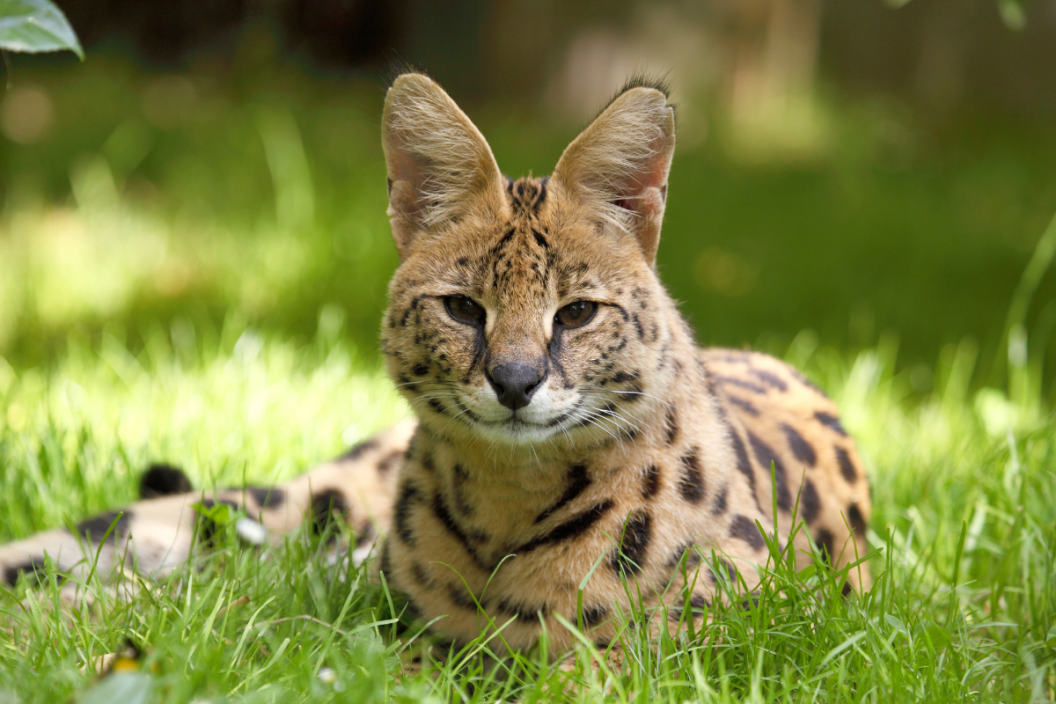Exotic pets more your speed? What do you get as a pet owner if a regular cat or dog just doesn't cut it?
Exotic pets have grown in popularity across the United States thanks to television and movies. Many celebrities, from Michael Jackson to Elvis to the "Tiger King" Joe Exotic, have documented their vast collections of exotic pets. If you're looking for something a little "out of the ordinary" for a pet, you've come to the right place! From small rodents to ever-clever chimpanzees, these ten exotic pets are legal to own in many places across the United States. However, many of them require a license for private ownership, so you'll need to call your local and state governments before bringing one into your home. Failure to do so may result in serious fines, as well as the immediate removal of the animal from your home.
There are benefits to owning exotic animals, but that begins with proper research, understanding habitat and dietary needs, and knowing how to handle these odd animals to truly have a great pet alongside its bold and ambitious owner!
Exotic Pets and Where They Can Be Owned
1. Capybara

The Capybara is one of the largest rodents in the world and can weigh up to 140 pounds, but they sure are cute! They are semi-aquatic animals, so if you're looking to adopt a capybara, they'll definitely need access to water to swim around. Although mostly adorable and sweet, capybaras can be a challenging pet. They do better in groups as they are extremely social animals, so pet owners should avoid getting a single capybara.
This semi-aquatic rodent is legal to own in Texas and Pennsylvania. In other states, they are legal but require licenses. It's always important check your local registration laws long before bringing home a capybara as a pet.
2. Bearded Dragon
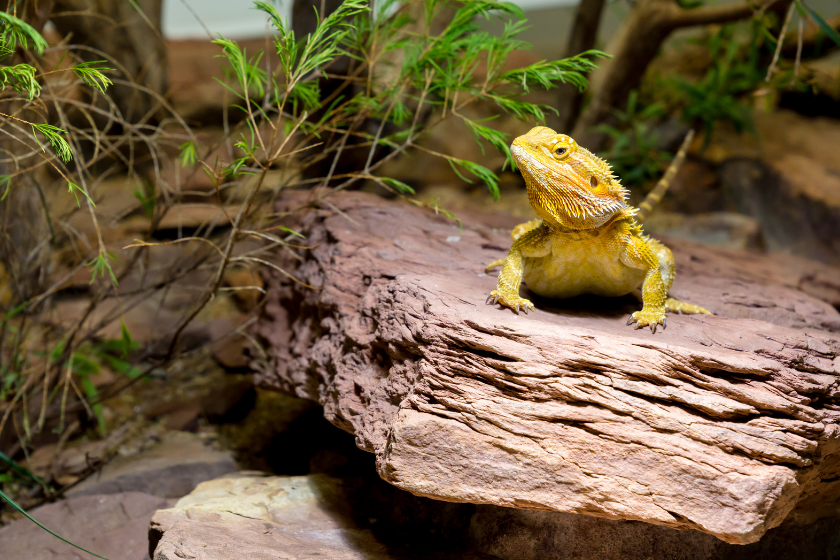
Originating from Australia, the bearded dragon is a common house pet in the United States. They make good first pets for kids because they have a calm nature and are relatively easy to care for. They can grow to be up to two feet long, so you'll need ample space for them to live in your home. Although they do love to be held and handled, you'll still want to wash your hands thoroughly afterward.
Bearded dragons are legal to own in the United States and sold in most pet stores. These reptiles are similar to geckos and iguanas.
3. Serval Cat
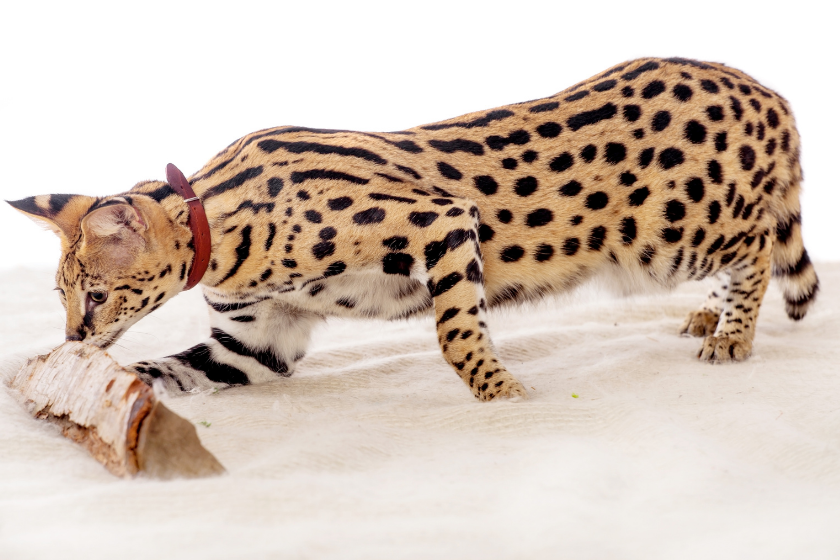
Although not always an ideal pet for everyone, the Serval is a gorgeous exotic cat from Africa. However, owning a Serval requires a different mindset than owning a domestic cat.
Servals aren't typically aggressive, but they can be difficult to own as they are still considered "wild." These beautiful animals can be very affectionate, but they have survival instincts that you may not be able to train.
When it comes to laws on exotic cat ownership in the United States, you will need to consult your state and local governments on specific laws that may, or may not, be in place. As of 2021, four states — Alabama, Nevada, North Carolina and Wisconsin — have no laws in place prohibiting keeping these kinds of animals as pets; There are 35 others states with varying levels of ownership laws in place, though many offer exemptions and requirements that need to be addressed before ownership is officially considered legal. (Some of those include Florida, New York, California and Virginia.) There are another four states — Washington, Oregon, Alaska and Louisiana — that ban private ownership completely.
4. Fennec Fox
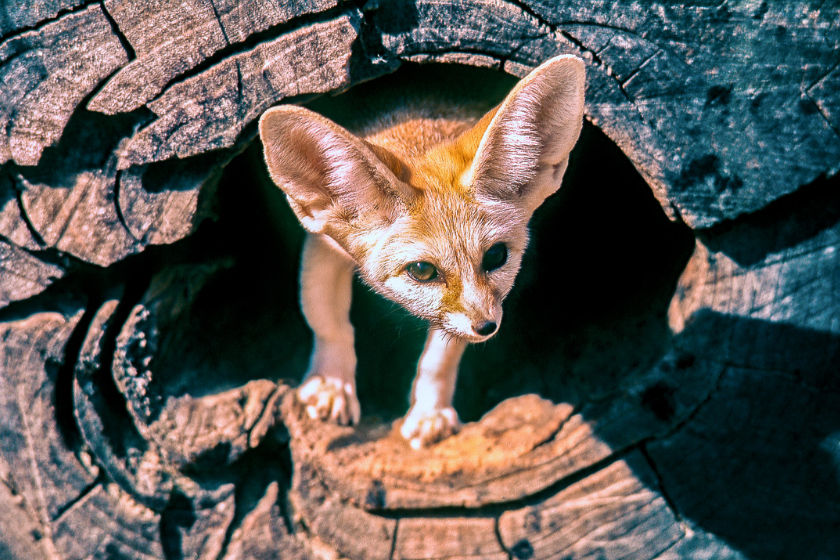
Getty Images
Fennec Foxes come from the African continent and are the smallest breed of fox in the world, only reaching about 4 pounds when fully grown. Their behavior closely resembles that of both a dog and a cat, which makes fennec foxes as pets a trendy subject among prospective owners. Usually playful and energetic like dogs, the fennec fox is also independent like a cat. They typically live to between 10 to 15 years old, so buying a fennec fox is a commitment, like most pets.
Like most exotics on this list, laws on owning a fennec fox will be dependent on your local area's laws. When considering ownership, also be sure you are adopting through a credible source — Taking in a wild fox by mistake, as opposed to a captive-bred fox that's been properly domesticated from a young age, will cause lots of problems for you and your family in the long run.
5. Wallaby

Getty Images
Closely resembling the kangaroo, wallabies are often referred to as "mini kangaroos." They are extremely common in the wild in Australia but can be seen around the United States as pets.
Wallabies are truly an exotic species, as they are not like any pet you've owned before. So if you're considering getting a wallaby as a companion, you'll want to do lots of research before bringing one home on everything from temperament, diet, housing and veterinary care. Lots of outdoor space is required to own a wallaby, so they are illegal to own inside many city limits. Check with your state before deciding to look for a wallaby as a pet, as you may need to obtain a license first.
6. Chimpanzee

RollingEarth/ Getty Images
Although there is no doubt they're absolutely adorable, chimpanzees can be challenging pets.
A chimpanzee's lifespan can be upwards of 50 years, meaning you're signing up for a lifelong commitment to raising this wild animal. A male chimp can grow to be around 150 pounds and is at least twice as strong as humans. Designing an enclosure for your new pet may be difficult as it'll need to be highly durable. Chimps really do belong in the wild, but if you're adequately trained and have experience around primates, you may find a partner for life.
Owning a chimpanzee is illegal in most states throughout the country. According to data compiled by MSU's Animal Legal and Historical Center, great ape laws by state vary greatly — Alabama, Kansas, Nevada, New Mexico, North Carolina, West Virginia and Wyoming allow private possession, according to state law; Ten other states (including Texas and Wisconsin) require specialty permits or registration to be obtained through the state; All other U.S. states ban private possession completely.
7. Hedgehog
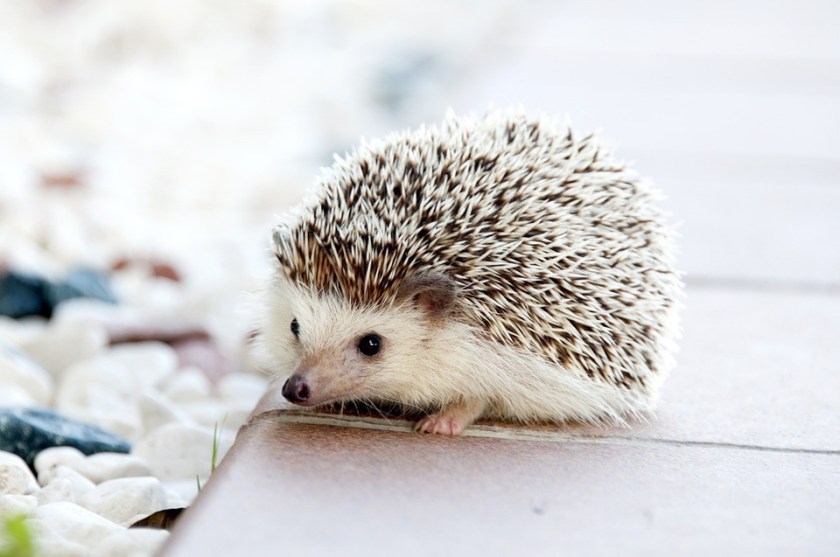
They sure are adorable, but is a hedgehog the right pet for you? Caring for a hedgehog can be similar to the care you would give to rodents like hamsters or guinea pigs. They'll need a proper cage, food, water, a hiding place, and a place to do their "business."
It's legal to own a hedgehog in most states around the United States. However, there are a few places where hedgehog ownership is illegal, including Pennsylvania, Hawaii, California, Georgia and the boroughs of New York City. Still, many states will ask for that proper permitting be obtained, so check local laws before bringing one of these sweet critters home.
8. Hyacinth Macaw
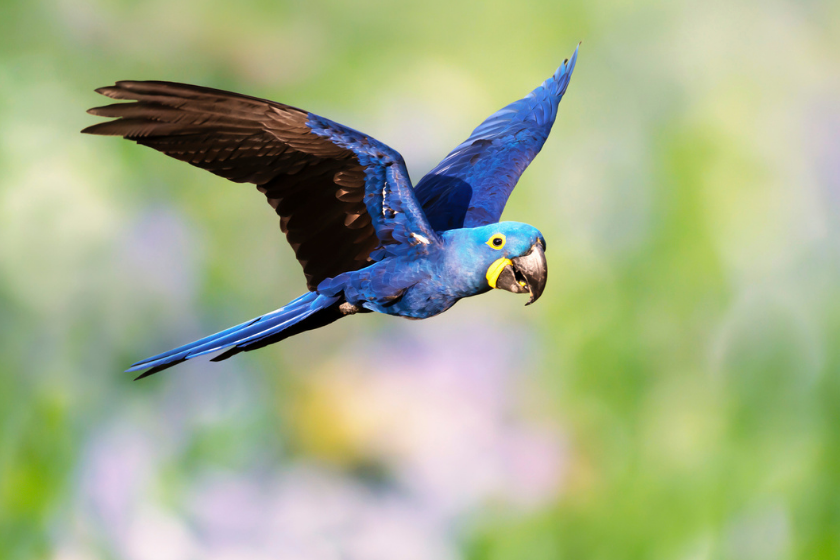
Getty Images
Able to grow up to 40 inches tall with a 60-inch wingspan, Hyacinth Macaws are powerful animals. If you decide to own this large macaw, you'll definitely want to begin training as young as possible to ensure they never hurt anyone with their powerful beak. They're brilliant birds that love to play and climb, so make sure they have plenty of space to roam.
Even though you can own this beautiful bird as a pet, they are considered "vulnurable" status among endangered species due in large part to pet and wildlife trade around the globe — It's estimated less than 7,000 Hyacinth Macaws remain in the wild. In addition, they're costly (think upwards of $10,000) and require a lot of special care.
Hyacinth macaws are legal in most states as long as they are obtained legally (not stolen or imported), and the proper documentation is completed. Consider parakeets as pets if you like birds but are looking at a more affordable and slightly less exotic version.
9. Chinchilla
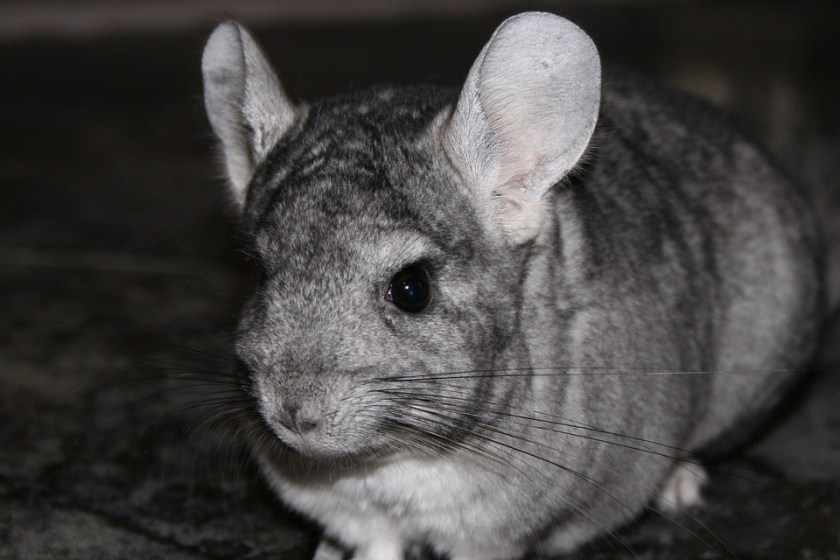
The chinchilla is a member of the rodent family but is (unfortunately) one of the more destructive ones — Owning a chinchilla takes a special kind of expertise and patience. They don't like to be cuddled, but they love to run around and play. Unfortunately, they can get bored relatively easily, so they'll need lots of toys and things to entertain them.
As long as the chinchilla is obtained legally (not captured from the wild), owning one in most states is legal without needing a permit or registration.
10. Ball Python
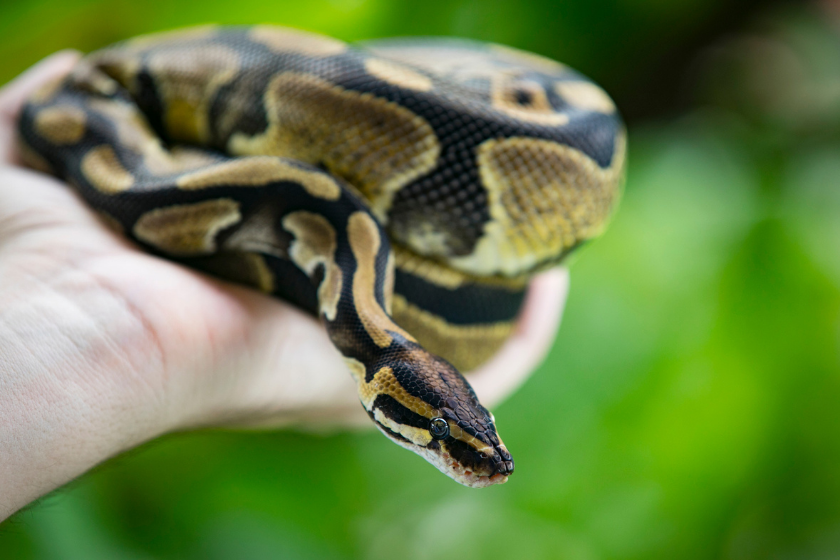
Kmatija/ Getty Images
In the same snake family as boas, ball pythons are constrictor snakes, meaning they kill their prey by constricting and suffocating them. Although smaller than boas, pythons can reach up to 3-4 feet long and live for an average of 20-30 years. Like other snakes (and many other pets), you'll need the proper enclosure, food, and environment for them.
Maybe not surprisingly, ball pythons are illegal to own in only one state: Hawaii. In all other states, ownership is considered legal, though you might need to obtain a permit in some areas.
Some honorable mentions for the furry exotic pet trade include prairie dogs, skunks, pot-bellied pigs, red foxes, sugar gliders, slow loris, gerbils, ferrets, and large cats like lions, tigers. Wolves can also be owned with special exotic animal permits. If you are more interested in the arachnid variety, check out tarantulas or even Madagascar hissing cockroaches. Exotic amphibians more your style? Meet the axolotis.
Many exotic pets are considered invasive species by the Department of Agriculture Hence, making them only legal to own with permits or in certain states. Others, of course, have limits due to their dangerous nature.
Think you need a pet that no one else has? Then, start with one of these exotic animals and be the talk of the neighborhood! But make sure you do your research in your particular state; exotic pet ownership is nothing to take lightly!
Editor's Note: This article has been updated since first publishing to reflect on-going changes to state laws pertaining to exotic animal ownership. It was last updated December 28, 2021. Questions on legality of ownership should always be brought to state and local governments before keeping this animals as pets.
Want to see more exotic pets? Follow along at our Wide Open Pets Facebook!
